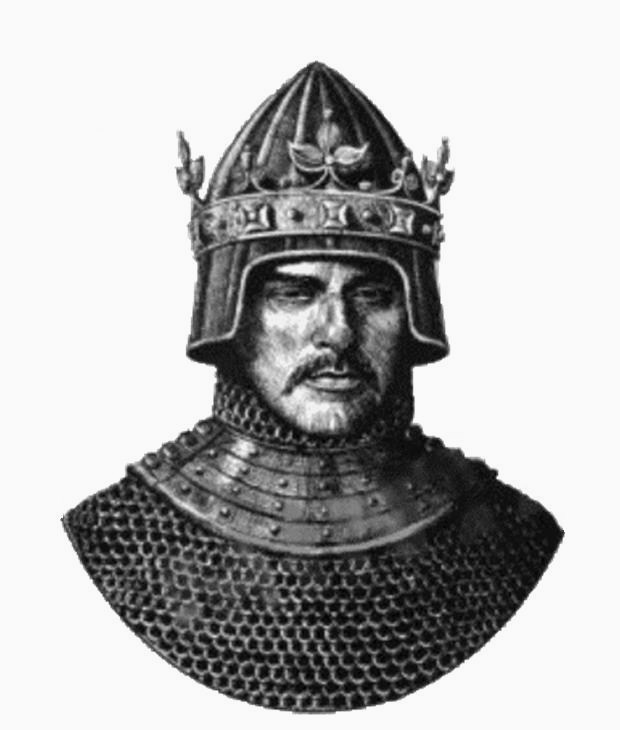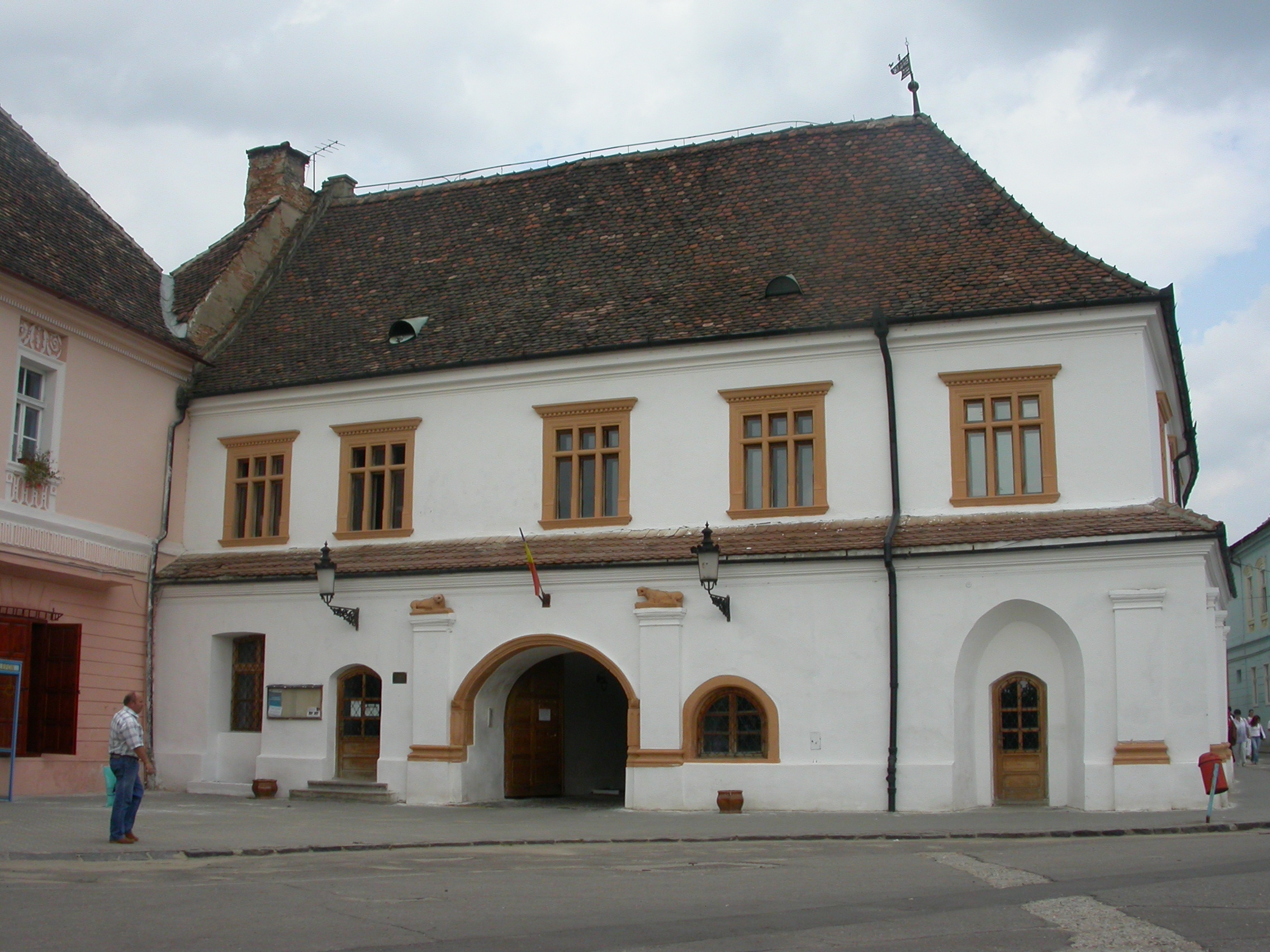|
Cisnădie
Cisnădie (; german: Heltau; Transylvanian Saxon dialect: ''Hielt''; hu, Nagydisznód) is a town in Sibiu County, Transylvania, central Romania, approximately south of Sibiu (german: Hermannstadt). One village, Cisnădioara (german: Michelsberg; hu, Kisdisznód), is administered by the town. History Cisnădie was mentioned for the first time in a document from the year 1204 under the name "Rivetel". In the 12th century Saxon colonists settled here and in 1323 the German name ''Heltau'' is mentioned. The town flourished, particularly the guilds of blacksmiths and wool weavers (weaving remained the traditional occupation of the town population until the 20th century, when large textile factories were built). Cisnădie shared most of Transylvania's eventful history. The town suffered several raids, starting with the 1241 raid of the Mongols and continuing with Ottoman attacks. The plague did not spare the town, neither did the fire nor various political agitations througho ... [...More Info...] [...Related Items...] OR: [Wikipedia] [Google] [Baidu] |
Sibiu County
Sibiu County () is a county ( ro, județ) of Romania, in the historical region of Transylvania. Its county seat ( ro, reședință de județ) is the namesake town of Sibiu (german: Hermannstadt). Name In Hungarian, it is known as ''Szeben megye'', and in German as ''Kreis Hermannstadt''. Under the Kingdom of Hungary, a county with an identical name ( Szeben County, ro, Comitatul Sibiu) was created in 1876. Demographics In 2011, Sibiu County had a population of 375,992 and the population density was . At the 2011 census the county has the following population indices: * Romanians – 91.25% (or 340,836) * Romani – 4.76% (or 17,901) * Hungarians – 2.89% (or 10,893) * Germans (Transylvanian Saxons) – 1.09% (or 4,117) * Other – 0.1% (or 640) Religion: * Romanian Orthodox – 90.9% * Greek Catholics – 2.3% * Reformed – 2.0% * Roman Catholics – 1.5% * Pentecostals – 1.1% * Baptists – 0.9% * Other – 1.3% Urbanisation – 5th most urbanised county ... [...More Info...] [...Related Items...] OR: [Wikipedia] [Google] [Baidu] |
Sibiu
Sibiu ( , , german: link=no, Hermannstadt , la, Cibinium, Transylvanian Saxon: ''Härmeschtat'', hu, Nagyszeben ) is a city in Romania, in the historical region of Transylvania. Located some north-west of Bucharest, the city straddles the Cibin River, a tributary of the river Olt. Now the capital of the Sibiu County, between 1692 and 1791 and 1849–65 Sibiu was also the capital of the Principality of Transylvania. Nicknamed ''The City with Eyes'', the city is a well-known tourist destination for both domestic and foreign visitors. Known for its culture, history, gastronomy and diverse architecture, which includes the iconic houses with eyes that gave Sibiu its nickname, the city has garnered significant attention since the beginning of the 21st century. In 2004, its historical center began the process of becoming a UNESCO World Heritage Site. Sibiu was designated the European Capital of Culture in 2007. One year later, it was ranked "Europe's 8th-most idyllic place to li ... [...More Info...] [...Related Items...] OR: [Wikipedia] [Google] [Baidu] |
Teodora Albon
Teodora Albon (born 2 December 1977 in Cisnădie, Romania) is a Romanian football referee. Albon started her refereeing career in 2000 while still playing for Clujana Cluj-Napoca, where she was coached by her husband, Mirel Albon, a former Liga I assistant referee. She refereed the 2009 UEFA Women's Under-19 Championship Final between Sweden and England. She refereed (accompanied by a team of three Romanian match officials – assistants Petruța Iugulescu and Mihaela Țepușa, and fourth official Cristina Dorcioman) of the 2013 UEFA Women's Champions League Final at Stamford Bridge in London, where VfL Wolfsburg beat Lyon 1–0 in regular time, and also officiated at two matches during UEFA Women's Euro 2013. She also refereed the 2011–12 UEFA Women's Champions League semi-final between Lyon and Turbine Potsdam, and the 2012–13 UEFA Women's Champions League quarter-final, between Arsenal and Torres. Additionally, she was a referee for the 2015 FIFA Women's World Cup in Can ... [...More Info...] [...Related Items...] OR: [Wikipedia] [Google] [Baidu] |
Gáspár Heltai
Gáspár Heltai (born as Kaspar Helth) (''c''. 1490–1574) was a Transylvanian Saxon writer and printer. His name possibly derives from the village Heltau ( hu, Nagydisznód, today Cisnădie, Romania). Despite being a German native speaker he published many books in Hungarian from his print-shop. The brother of his son-in-law was Ferenc Dávid, Nontrinitarian and Unitarian preacher and the founder of the Unitarian Church of Transylvania. Career He studied at Wittenberg University and he established the first print shop in Kolozsvár (now Cluj-Napoca, Romania). He also founded a public bath, a paper mill and the first brewery in the town. He was at the same time a pastor, translator, printer, publisher, writer and businessman. He is considered the first religious reformer of Kolozsvár. He was a great spirit of Hungarian Unitarian Reformation. Together with a group of scholars he produced an almost complete translation of the New Testament into Hungarian. His work marked th ... [...More Info...] [...Related Items...] OR: [Wikipedia] [Google] [Baidu] |
Germans Of Romania
The Germans of Romania (german: Rumäniendeutsche; ro, Germanii din România) represent one of the most significant historical Minorities of Romania, ethnic minorities of Romania. During Kingdom of Romania#The interbellum years, the interwar period, the total number of ethnic Germans in this country amounted to as much as 800,000 (according to some sources and estimates dating to 1939, just on the verge of World War II), a figure which has subsequently fallen to 36,000 (according to the 2011 Romanian census, 2011 census). Following the decreasing trend of the overall population of Romania, the German community of the country is expected to continue shrinking in numbers as well, as it will later be officially reported in the near future by the partial results of the 2022 Romanian census, 2022 census. Overview and classification of Romanian-Germans The Germans of Romania (or Romanian-Germans) are not a single, unitary, homogeneous group, but rather a series of various ... [...More Info...] [...Related Items...] OR: [Wikipedia] [Google] [Baidu] |
Transylvanian Saxons
The Transylvanian Saxons (german: Siebenbürger Sachsen; Transylvanian Saxon: ''Siweberjer Såksen''; ro, Sași ardeleni, sași transilvăneni/transilvani; hu, Erdélyi szászok) are a people of German ethnicity who settled in Transylvania (german: Siebenbürgen) in waves starting from the mid- 12th century until the mid 19th century. The legal foundation of the settlement was laid down in the Diploma Andreanum issued by King Andrew II of Hungary that is known for providing the first territorial autonomy hitherto in the history. The Transylvanian "Saxons" originally came from Flanders, Hainaut, Brabant, Liège, Zeeland, Moselle, Lorraine, and Luxembourg, then situated in the north-western territories of the Holy Roman Empire around the 1140s. After 1918 and the dissolution of Austria-Hungary, in the wake of the Treaty of Trianon, Transylvania united with the Kingdom of Romania. Consequently, the Transylvanian Saxons, together with other ethnic German sub-groups in newly e ... [...More Info...] [...Related Items...] OR: [Wikipedia] [Google] [Baidu] |
Democratic Forum Of Germans In Romania
The Democratic Forum of Germans in Romania (german: Demokratisches Forum der Deutschen in Rumänien, DFDR; ro, Forumul Democrat al Germanilor din România, FDGR; in short or ) is a political party (legally recognized as an association of public utility according to the governmental decision HG 599 as per 4 June 2008) organised on ethnic criterion representing the interests of the German minority in Romania. Initially, the FDGR/DFDR was a cultural association representing the culture of the German community in Romania, but it subsequently became a moderately successful local political party (especially amongst Romanian voters as well), most notably in parts of Transylvania (central Romania) and Banat (south-western Romania). Consequently, the counties where the FDGR/DFDR obtained the highest political scores in many local elections after 1989 are Sibiu and Timiș respectively. History (1989–present) The forum was founded at the end of 1989, in the wake of the Romanian Rev ... [...More Info...] [...Related Items...] OR: [Wikipedia] [Google] [Baidu] |
List Of Fortified Churches In Transylvania
The following is a list of fortified churches in Transylvania. Southeastern Transylvania in Romania has one of the highest numbers of still-existing fortified churches, which were built during the 13th to 16th centuries, a period during which Transylvania was part of the Kingdom of Hungary and the Ottoman Empire was rising. Villages with Fortified Churches in Transylvania. UNESCO World Heritage Centre 1992-2010 More than 150 villages in the area count various types of fortified churches, seven of them being included in the UNESCO under the name of '' |
Lazăr Baroga
Lazăr Baroga (11 August 1937 – 14 September 2000) was a Romanian weightlifter. He competed at the 1960 Summer Olympics and the 1964 Summer Olympics The , officially the and commonly known as Tokyo 1964 ( ja, 東京1964), were an international multi-sport event held from 10 to 24 October 1964 in Tokyo, Japan. Tokyo had been awarded the organization of the 1940 Summer Olympics, but this ho .... Baroga createthe Baroga table, it is a document that helps to calculate the ratio on the semi-technical movements in weightlifting References 1937 births 2000 deaths Romanian male weightlifters Olympic weightlifters of Romania Weightlifters at the 1960 Summer Olympics Weightlifters at the 1964 Summer Olympics People from Sibiu County {{Romania-weightlifting-bio-stub ... [...More Info...] [...Related Items...] OR: [Wikipedia] [Google] [Baidu] |
Romania
Romania ( ; ro, România ) is a country located at the crossroads of Central Europe, Central, Eastern Europe, Eastern, and Southeast Europe, Southeastern Europe. It borders Bulgaria to the south, Ukraine to the north, Hungary to the west, Serbia to the southwest, Moldova to the east, and the Black Sea to the southeast. It has a predominantly Temperate climate, temperate-continental climate, and an area of , with a population of around 19 million. Romania is the List of European countries by area, twelfth-largest country in Europe and the List of European Union member states by population, sixth-most populous member state of the European Union. Its capital and largest city is Bucharest, followed by Iași, Cluj-Napoca, Timișoara, Constanța, Craiova, Brașov, and Galați. The Danube, Europe's second-longest river, rises in Germany's Black Forest and flows in a southeasterly direction for , before emptying into Romania's Danube Delta. The Carpathian Mountains, which cross Roma ... [...More Info...] [...Related Items...] OR: [Wikipedia] [Google] [Baidu] |
PRO Romania
PRO Romania (, PRO) is a minor extra-parliamentary Social liberalism, social liberal list of political parties in Romania, political party in Romania. History The founding of PRO Romania was initiated in 2017 by former Prime Minister Victor Ponta, former acting (law), acting/ad interim Prime Minister and Minister of Education Sorin Cîmpeanu, and former Deputy Prime Minister and Minister of Environment and Climate Change Daniel Constantin (politician), Daniel Constantin. The party was formally established on 20 February 2018 in Bucharest. Corina Crețu, European Commissioner for Regional Policy, announced on 17 January 2019 that she will candidate in the 2019 European Parliament election, European Parliament election on behalf of PRO Romania. She will be at the second position in the list after Victor Ponta. Only 4 days later, senator and former Ministry of National Defence (Romania), Minister of National Defence Adrian Țuțuianu announced that he joined the party, becoming t ... [...More Info...] [...Related Items...] OR: [Wikipedia] [Google] [Baidu] |




.png)


